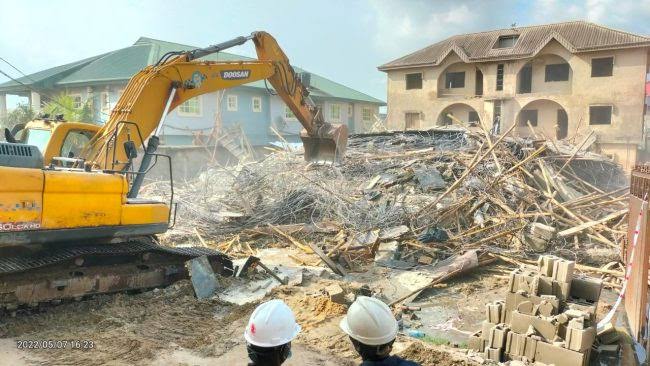Demolition Across Lagos: A Call for Mass Resistance
By Tunde Yusuf

The wave of demolition and forced evictions targeting working-class communities across Nigeria, particularly in Lagos State, has become a brutal and recurring pattern under the guise of development and urban planning. These actions—championed by federal and state governments—are not just about city beautification or enforcing building codes; they represent a clear, calculated assault on the poor and working people. In reality, these demolitions are part of a broader agenda of land-grabbing and spatial segregation aimed at making land and housing the exclusive preserve of the rich, while the majority are condemned to displacement, homelessness, and mental and physical suffering.
This is unfolding at a time when Nigeria faces a staggering housing deficit of 28 million units (according to Punch newspaper), a crisis that affects every region of the country. Yet, instead of prioritizing affordable housing or rent control for the masses, governments—especially in Lagos—have chosen to make life even more unbearable. Workers, artisans, market women, and students can no longer afford rising rents, let alone dream of owning a home. For many working-class families who moved to Lagos with hopes of finding better jobs and decent shelter, that dream has turned into a nightmare of eviction and demolition.
Under the cover of legal instruments like the Land Use Act of 1978 and various urban planning laws, the Lagos State government has carried out mass demolitions in Abule Ado, Ladipo, Oworonshoki, Ajao Estate, Okoko Baba, and most recently, Otto in Lagos Mainland. These actions have only deepened the housing crisis in a state already grappling with a deficit of 2.3 million housing units (as reported by Nairametrics). Rather than take inspiration from people-oriented programs like those initiated by Lateef Jakande between 1979 and 1983—which provided affordable homes for workers and the poor—governments from 1999 to date have chosen to align with billionaires, politicians, and so-called private investors who treat housing purely as a business opportunity for profit.
One glaring example is the forced demolition and land grabs in the Ibeju-Lekki/Epe corridor to make way for Dangote’s petrochemical refinery—an anti-poor project that displaced thousands of low-income families, often without compensation. It is no coincidence that under the Tinubu regime, the wealth of Africa’s richest man, Aliko Dangote, has soared from $13 billion to $23.9 billion, aided by outrageous hikes in the price of cement, building materials, and petrol—all of which are crucial to housing and daily survival.
Government agencies justify these demolitions with weak and elitist excuses: “violations of urban and regional planning laws,” “contraventions of Lagos master plan,” and other anti-poor laws that have been codified by state and national assemblies to serve the interests of the capitalist elite. These policies and practices have worsened the suffering of working families, with women and children bearing the brunt. Eye-witnesses in Otto and other areas recount how bulldozers, tractors, and heavily armed security agents often storm communities with little or no notice, leaving thousands without shelter.
The Solidarity Network for Workers’ Rights stands in full solidarity with affected communities. We commend the courage of residents who have begun to resist this injustice and demand accountability from those in power. It is time to escalate the struggle. We propose the formation of a national coalition of all affected communities—a united front to organize, mobilize, and fight back against this systemic and violent displacement. Let it be clear: the only way to stop these forced demolitions and reclaim the right to shelter is through mass resistance and coordinated action. The right to housing is a fundamental right—not a privilege for the billionaire class.
